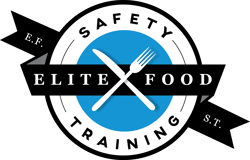Understanding the requirements and expertise necessary for local, state, and federal representatives to enact effective food safety laws is crucial for public health. This blog explores the qualifications, challenges, and solutions to ensure that food safety regulations are both accurate and enforceable.
The Importance of Expertise in Food Safety Legislation
Food safety is a critical public health issue that affects everyone. Ensuring that the laws governing food safety are based on sound science and best practices requires a deep understanding of the field. However, many of the individuals responsible for making these laws may lack the necessary expertise. This gap in knowledge can lead to regulations that are ineffective, overly burdensome, or even counterproductive.
When lawmakers do not have a solid grounding in food safety, they may rely heavily on advisors or lobbyists, whose interests may not always align with public health. This underscores the importance of having representatives who are well-versed in food safety and can critically assess the information presented to them.
Educational and Professional Requirements for Lawmakers
To make informed decisions about food safety, lawmakers should ideally have a background in public health, food science, or a related field. This education provides a foundational understanding of the biological, chemical, and physical hazards that can affect food safety, as well as the methods used to control these hazards.
In addition to formal education, practical experience in the food industry or in regulatory roles is invaluable. Such experience allows lawmakers to understand the real-world implications of the laws they create and ensures that regulations are both practical and enforceable.
Challenges in Enforcing Food Safety Laws Amid Budget Cuts
Even when effective food safety laws are enacted, enforcing these regulations can be challenging, especially in the face of budget cuts. Health departments at the local, state, and federal levels often struggle with limited resources, which can hinder their ability to conduct inspections, respond to outbreaks, and ensure compliance with food safety standards.
Budget constraints can lead to a reduction in the frequency and thoroughness of inspections, which increases the risk of foodborne illness outbreaks. It is essential for lawmakers to understand the resource needs of health departments and to allocate sufficient funding to ensure that food safety laws can be effectively enforced.
Ensuring Accountability and Compliance in Food Safety
Accountability is a key component of effective food safety regulation. Health departments must have the authority and resources to hold food producers, processors, and retailers accountable for complying with food safety laws. This includes conducting regular inspections, investigating complaints, and taking enforcement actions when necessary.
Transparency is also crucial for maintaining public trust in the food safety system. Clear communication about the standards being enforced, the results of inspections, and the actions taken in response to violations helps to ensure that all stakeholders are held accountable and that the public remains informed.
Strategies for Improving Food Safety Legislation
To improve food safety legislation, it is important to involve experts from various fields in the lawmaking process. This can include public health professionals, food scientists, industry representatives, and consumer advocates. By bringing diverse perspectives to the table, lawmakers can develop more comprehensive and effective regulations.
Ongoing education and training for lawmakers are also essential. Providing opportunities for legislators to learn about the latest developments in food safety science and technology can help them make more informed decisions. Additionally, fostering a culture of continuous improvement within regulatory agencies can ensure that food safety laws evolve to meet new challenges and incorporate the best available science.

.png)
.png)
-2.png)
-2.png)
.jpg)
